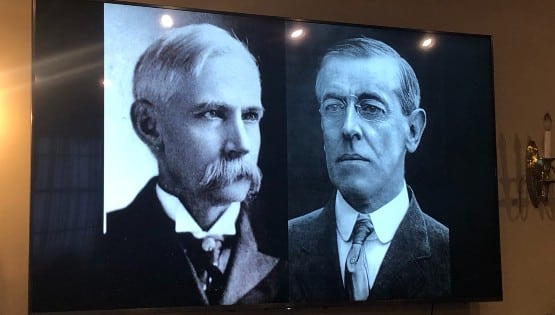
The “sharing economy” is all the rage these days ever since the likes of Uber, Lyft, AirBnb, and others took the market by storm. Sharing economy style apps and services are slowly beginning to pop up for more and more services from food sharing to tool lending and now apparently policing.
Recent budget cuts to some departments have left some to wonder what to do in the face of potential crime, while others more skeptical of the police system’s problematic track record are looking for alternatives altogether. Groups such as the Huey P. Newton Gun Club, private arbitration services such as the American Arbitration Association, community accountability processes, and apps such as Peacekeeper have sprung up as realistic alternatives to the current militaristic policing system and prison industrial complex. Sidney Torres from Louisiana, who made his fortune in the trash business during the aftermath of Katrina, however had a different idea.
After complaining time and again to Mayor Mitch Andrieu of the “rising crime rates” and demanding more officers to be put on duty at any given time only to hear excuses about budgetary restraints, Torres was told that, “if it’s so easy, maybe he should take some of that money and do it himself.” And Torres decidedly did just that. Investing in a couple of ATVs refurbished with police lights for proper transport and paying off duty officers a whopping $50 an hour, Torres managed to band together the fleet for his new app: French Quarter Task Force. With the help of Bob Sims, a retired rocket scientist, he developed the French Quarter Task Force app which allows users within the French Quarter location to report any “suspicious persons or activities” on the app along with photos and details directly to off duty police officers on the “Task Force” who are able to respond in mere minutes zooming through the crowded French Quarter in their flashing golf carts faster than if you called them while they were on duty.
However critics point out that with such a vague notion as to the definition of “suspicious persons or activities” and an app designed to function as the smartphone equivalent of a see something, say something campaign, encouraging people to make reporting to the police as much of a person’s daily life in the Quarter as ordering an Uber to drive you home from the bar after an all night bender, only puts more police on the streets, thus potentially bringing harm to New Orleans’ large black, queer, and homeless populations.
While this system has some limited potential to hold the Task Force officers more accountable than the police department does, having the ability to fire cops who use excessive force or otherwise abuse their status from their well paid side job, they make no such promises to do so. In truth, the very fact that they hired off duty police to be the staff for this private police force shows that it is no serious policing alternative but rather private funding for the current system. They’re the same cops with the same badges, weapons, and abilities to arrest you and use “necessary” physical and even lethal force. The only “alternative” is the manner of reporting, the source of the funding, and the mode of transportation.
There is some speculation that this app comes as retaliation to apps like the ACLU’s Mobile Justice app which lets you film and upload potential police abuse directly to the ACLU. And while it is unlikely that there is any direct connection, the similarities are obvious. This is a perfect example of the double edged sword that is technology. The tools of liberation can also become the tools for our oppression.
While apps like Peacekeeper and Cell411 show that the sharing economy does have solutions to offer when it comes to the question of policing alternatives, the French Quarter Task Force proves only to be an extension of the status quo agenda. Much like Uber has been called a capitalist drink bottled in a sharing economy glass, the app appropriately referred to as “Uber for cops” is a statist model pretending to be part of the peer-to-peer world.










